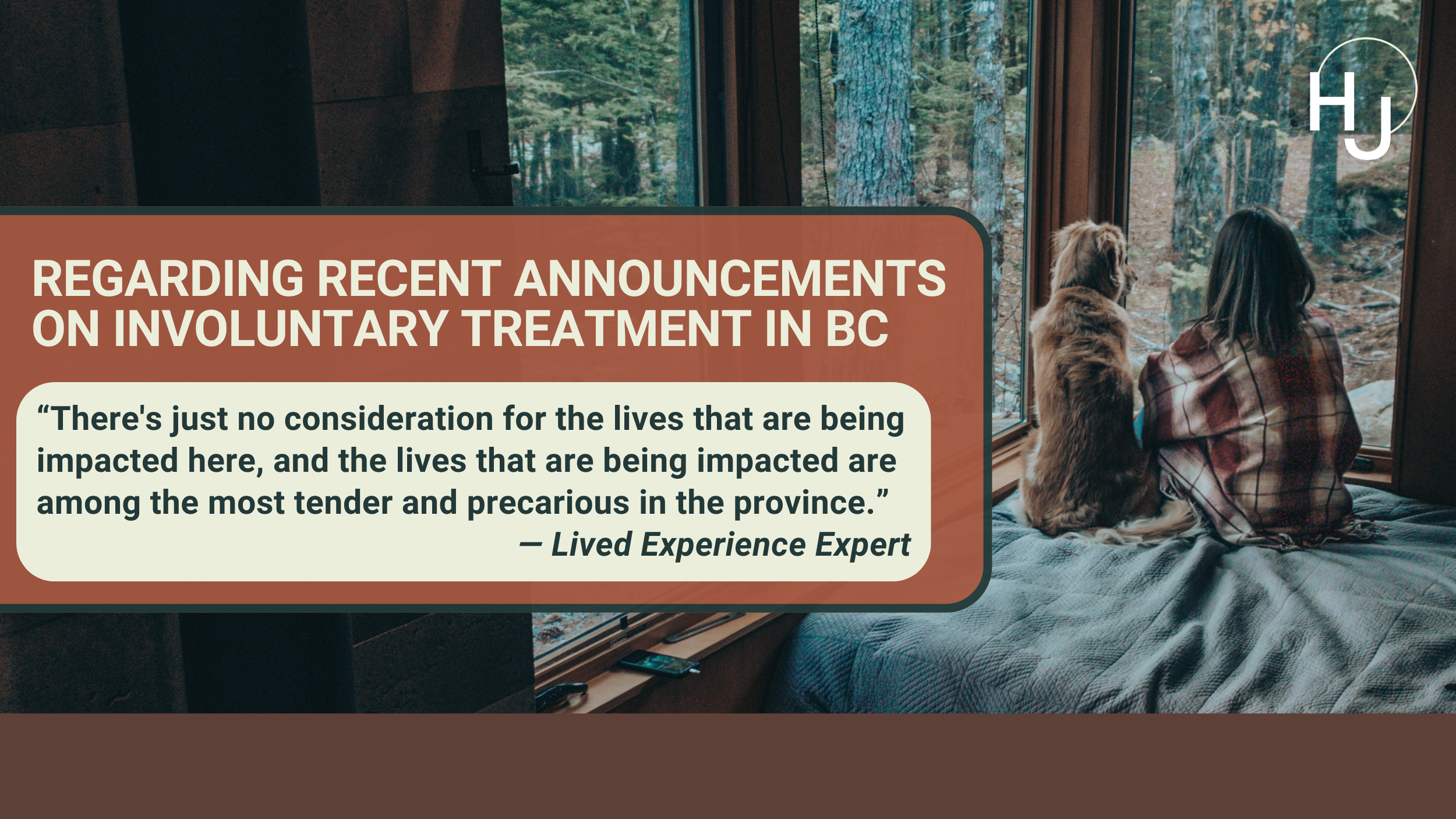Regarding recent announcements on involuntary treatment in BC
People with disabilities and mental health and substance use health issues are being used for political football
“There's just no consideration for the lives that are being impacted here, and the lives that are being impacted are among the most tender and precarious in the province.”
— Lived Experience Expert
Recently, conversations about involuntary treatment for people with disabilities and mental health and substance use health issues have dominated public debate.
These debates have been intensely political, partisan, and rely on old tactics: ramping up public fear, dehumanizing some members of the public, and doubling down on stereotypes to create a dynamic where, pre-election, a party can position itself as holding the answers to the culture of fear it has, in part, helped create. These tactics weaponize a community of people as “dangerous” regardless of truth or the root causes of unmet needs. They pit members of our community against each other.
The result is not new either: a flurry of pre-election announcements making hastily pulled together promises — soundbites, really — that claim to be quick fixes to complex issues.
Complex problems are not solved with quick fixes. There is no doubt that people and communities experience harm when people’s mental health, substance use, and other basic needs go unmet. But the answer is not to create more harm by using these serious issues, and the lives of real people, in a game of political football.
Last minute election campaign announcements are not a productive way to generate holistic and effective mental health and substance use health law and policy. In fact, the current debate creates incredible harm and distress for the people it is claiming to “help” because their lives and needs are distorted to serve the political needs of the moment.
Every member of our communities deserves to be safe and well, but over simplistic solutions that don’t address the root issues will not achieve that goal. If our prospective governments and elected representatives want to work to solve the complex, systemic issues that lead to unmet mental health and substance use health needs in BC, we know that no one person, regardless of their position or power, holds the answer.
We need expansive and deep engagement with people with direct lived and living experience of involuntary mental health and substance use treatment, as well as people with mental health and/or substance use health issues that might lead to them experiencing involuntary treatment.
A commitment to transparency and evidence-based research is required. An honest evaluation of the systemic failures of BC’s current system is needed. Willingness to acknowledge and address root causes, including stereotypes and discrimination is required. Meaningful compliance with the Declaration on the Rights of Indigenous Peoples is required. Broad stakeholder consultation is required, with an open mind to hearing diverse views. Careful legal analysis of how proposed guidelines or amendments to mental health laws will intersect with constitutional requirements and other laws is required. These things take time, thought, and intention that goes beyond any one announcement or election.
To be effective, this work must be done independently and outside of the partisan political fray.
Health Justice is the independent, non-profit organization in BC that specializes in the Mental Health Act and involuntary mental health and substance use health laws and policies. We were not consulted in relation to any of the recent announcements, despite our extensive research and engagement with people with lived and living experience of involuntary treatment and our unique legal expertise on mental health and substance use health law and policy.
We welcome opportunities to help shape meaningful change in BC that are not rooted in rhetoric that uses human beings and human rights as political footballs.
Update: We have now released our fact sheet on involuntary treatment in BC in 2024. On this page you can view the factsheet in web page format or read the pdf version.
Related News
CMHABC’s Statement: Involuntary Care Already Exists in BC, But Is It Working?
Is reopening Riverview Hospital the answer to B.C.’s mental health challenges?, CBC Vancouver
CTV News Reality Check: Why reopening Riverview wouldn't solve B.C.'s mental health crisis
Why ‘reopen Riverview’ is the wrong response to stranger violence

